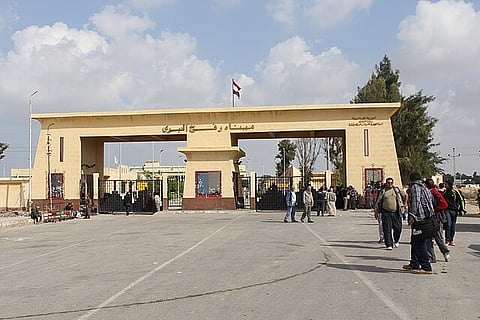

Israel has announced the Rafah border crossing will remain closed indefinitely, linking its reopening to Hamas returning all deceased hostages' bodies. This decision contradicts a prior announcement from the Palestinian embassy and creates another obstacle for Gaza's civilians, who are facing a severe humanitarian crisis.
On October 18, 2025, the office of Israeli Prime Minister Benjamin Netanyahu stated that the Rafah crossing, Gaza's sole gateway to the outside world not historically controlled by Israel, would stay closed "until further notice". An official statement clarified that reopening would be contingent on how Hamas fulfills its obligations to return the bodies of deceased hostages and implement the agreed-upon ceasefire terms. This announcement came shortly after the Palestinian embassy in Cairo had said the crossing would reopen for returns on Monday, highlighting the conflicting information and uncertainty facing Palestinians.
The handover of the remains of all deceased hostages is a key point in the fragile ceasefire process. Hamas has stated it is committed to the deal but faces significant challenges in locating and recovering the bodies due to the widespread devastation and the presence of unexploded ordnance throughout Gaza. The group has also informed mediators that some remains are in areas currently controlled by Israeli troops, further complicating recovery efforts. The sheer scale of destruction is immense, with Gaza's Civil Defence agency estimating that the bodies of about 10,000 people remain trapped under some 60 million tonnes of rubble.
This dispute over the crossing occurs amidst accusations from Gaza authorities that Israel has repeatedly violated the ceasefire. The Gaza media office has reported 47 Israeli violations since the truce began, resulting in the deaths of 38 Palestinians and wounding of 143 others. In one of the deadliest single incidents, eleven members of a Palestinian family, including seven children and three women, were killed when Israeli forces struck their bus in Gaza City. Gaza's Civil Defence stated the family was trying to reach their home and questioned the Israeli military's claim of a "suspicious vehicle," noting there are no physical markers for the so-called "yellow line" that demarcates areas of Israeli army control.
The continued closure of the Rafah crossing severely exacerbates the dire humanitarian situation in Gaza. A fully reopened crossing is crucial for civilians to seek medical treatment, travel, or visit family in Egypt. Furthermore, humanitarian agencies have warned that aid remains critically scarce one week into the ceasefire. While the agreement stipulates that about 600 aid trucks should enter daily, U.N. data shows a fraction of that has been delivered for distribution. The United Nations has a "massive" plan to surge aid, including food, health supplies, and tents for the winter, but this effort is hampered by closed crossings and restrictions.